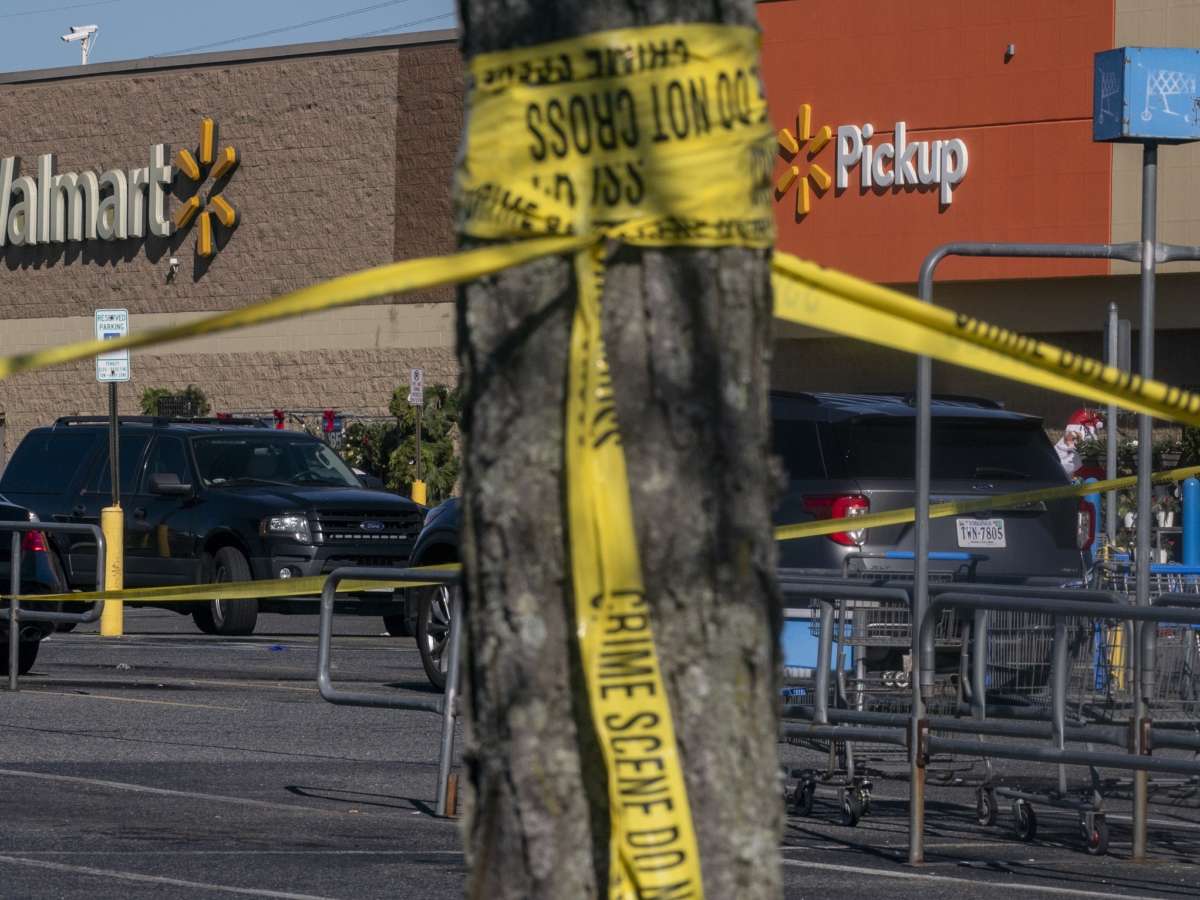Six people were killed and four more were injured in a mass shooting at a Walmart Supercenter in Chesapeake, Virginia, on Tuesday evening.
The shooting reportedly took place as workers were beginning their evening shifts. According to law enforcement, the gunman was a 31-year-old employee who was armed with a pistol. He reportedly died from a self-inflicted gunshot wound.
The shooting is the deadliest mass shooting at a retail center in the U.S. since a white supremacist shot and killed 10 Black people at a grocery store in Buffalo, New York, in May.
According to a report from WAVY, an NBC affiliate station in Virginia, a witness to the shooting said that the perpetrator was not only an employee of the Walmart but also a store manager. The shooting began as employees were in a meeting room to learn their shift assignments, the witness said, and the attack seemed to be premeditated.
Several lawmakers reacted to news of the shooting by amplifying calls to pass federal gun reforms.
“It is long overdue for Congress to pass the common sense gun safety reform that Americans are demanding,” Sen. Bernie Sanders (I-Vermont) said on Twitter. “If we can’t get 60 votes in the Senate, then we must end the filibuster to protect our people.”
“America’s gun violence epidemic is a GUN problem — and we need meaningful, federal gun safety reforms to keep our communities safe,” Sen. Patty Murray (D-Washington) tweeted.
President Joe Biden expressed his condolences in an official White House statement and called for Congress to take “greater action” on gun reform so that he could sign legislation into law. The president made a similar statement three days ago in response to the mass shooting that killed five people and injured at least 19 others at an LGBTQ club in Colorado Springs, Colorado, over the weekend.
While gun legislation is desperately needed, many gun reform proposals would likely criminalize already marginalized communities, Ramsin Canon, a Chicago-based civil rights attorney, pointed out in an op-ed for Truthout in March of last year.
“Gun control advocates typically argue that we must center our policy responses on the consumers of weapons, to make acquiring and owning a gun more difficult — often including criminal penalties for gun ownership in various scenarios. … [But] this approach suffers from multiple risks and weaknesses,” Canon wrote, noting that such gun control laws would require implementation from law enforcement agencies that are “simply more likely to disproportionately target working-class people of color, who face disproportionate arrest and sentencing.”
Instead of focusing on consumers, lawmakers should focus on ending protections for gun manufacturers, Canon said, explaining that:
The most plain way to impose a cost on the gun manufacturing industry is repealing the Protection of Lawful Commerce in Arms Act (PLCAA) and subjecting the industry to public nuisance and public health theories of liability. These strategies would begin to compel the industry to bear actual, constant and proportional costs of its reckless overproduction and marketing of arms.
By making gun manufacturers bear partial responsibility for shootings and killings, communities and policymakers will be afforded “breathing space to experiment with deeply needed public health approaches to addressing gun violence, rather than merely creating more and more intrusive policing strategies that will inevitably fall hardest on working-class communities of color,” Canon concluded.


